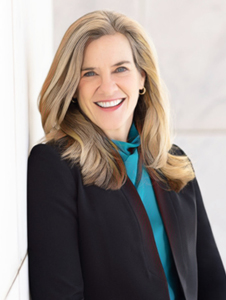Close call preserves ruling against government-sponsored religion
We welcome and defend the participation of religious entities in public life, and we believe that religious freedom works best when there is meaningful separation between the institutions of religion and government.

As we head toward a new Supreme Court term this October, the consequential decisions of the most recent term are continuing to make an impact. Amanda and I discussed several in our season finale of the Respecting Religion podcast, with three squarely on the religious freedom front.
Among the most significant decisions was one about which the Court said the least.
The full unsigned opinion in Oklahoma Statewide Charter School Board, et al. v. Drummond states: “The judgment of the Supreme Court of Oklahoma was affirmed by an equally divided Court.”
With that one sentence, the Court rejected a proposed religious charter school, one dedicated to the evangelizing mission of the Catholic Church. BJC applauded the decision, which was issued surprisingly soon — less than a month! — after thorough and vigorous oral arguments.
In addition to breathing a sigh of relief, those of us who advocate for religious freedom for all should take stock, seek to understand what is at stake, and reinforce our commitment to the institutions that serve everyone. There is more work ahead.
The proposed Catholic charter school, St. Isidore of Seville Catholic Virtual School, was controversial from the start. BJC spoke out, opposing the notion of a government-established religious school as a threat to religious freedom and supporting litigation efforts by organizing and joining with other religious groups to file a brief in the case. People of all faiths and no faith decried the proposal as a fundamental threat to religious freedom and the charter school movement. Yet, the school made it to the highest court, claiming a First Amendment right to operate within Oklahoma’s public school system. Thankfully, and based on a 4-4 split among the participating justices, it failed. Justice Amy Coney Barrett took no part in the proceedings, although she never gave a reason for recusing herself from this case.
The identity of how the justices voted is unknown, but many presume Chief Justice John Roberts joined the three liberal-leaning justices for this deadlocked result. Chief Justice Roberts authored three cases in recent years that sided with challengers to state laws designed to keep the institutions of religion and government separate. This case, however, may have presented a bridge too far for him. During oral argument, the Chief pointedly noted that St. Isidore’s argument to require Oklahoma to establish and fund a Catholic charter school relied heavily on those three cases: Trinity Lutheran, Espinoza and Carson. BJC also was involved in all three of those by filing friend-of-the-court briefs in defense of separation principles.
During the arguments, the Chief said, “Those [cases] involved fairly discrete state involvement. … I mean, this does strike me as a much more comprehensive involvement, and I wonder what case you think supports the position with respect to that level of involvement.” No good answer came from the attorney for the school.
As counsel for the other side — representing Oklahoma Attorney General Gentner Drummond — said repeatedly during the arguments: Charter schools are public schools. Public schools by definition must be open for all and are constitutionally prohibited from sponsoring prayer, religious instruction and other religious exercises.
Of course, the fact that four justices on the Supreme Court would have ruled differently is cause for continuing concern and illuminates the need for continued advocacy. I was particularly troubled by questions from Justice Brett Kavanaugh at oral argument. As a justice who often seems to be working hard to be viewed as moderate, he was surprisingly aggressive in support of the school’s position. Kavanaugh’s questions suggested he viewed the case as about parental choice or private religious organizations participating in a program open to all. In a long line of questioning, he seemed to be pleading to help him understand why religion should be treated differently. Oklahoma, however, forcefully pushed back. Charter schools are public schools — established, fully-funded, operated and supervised by the state. They don’t indoctrinate in religion.
BJC will continue to oppose state-sponsored religion. We welcome and defend the participation of religious entities in public life, and we believe that religious freedom works best when there is meaningful separation between the institutions of religion and government. As we said in our brief, religious and civil institutions must remain distinct. Our Constitution’s First Amendment sets it up that way, and it’s been reaffirmed across generations that doing so safeguards the integrity of religious communities as well as the legitimacy of the state.
Holly Hollman is general counsel of BJC.
This article originally appeared in the summer/fall 2025 edition of Report from the Capital. You can view it as a PDF or read a digital flip-through edition.




